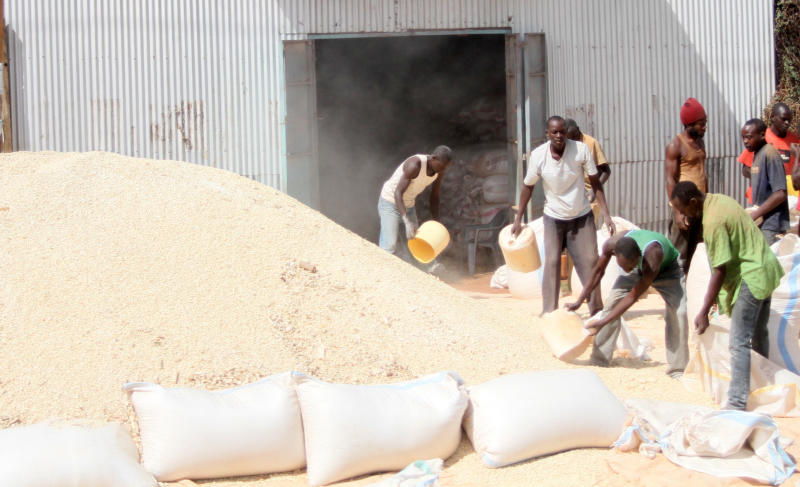×
The Standard e-Paper
Fearless, Trusted News

Tests conducted by the county government have revealed that 2,856 bags of relief maize are contaminated with aflatoxin.
County officials took samples of a consignment stored at National Cereals and Produce Board (NCPB) depots after those who had already received the maize complained that the colour indicated the quality of maize could have been compromised.